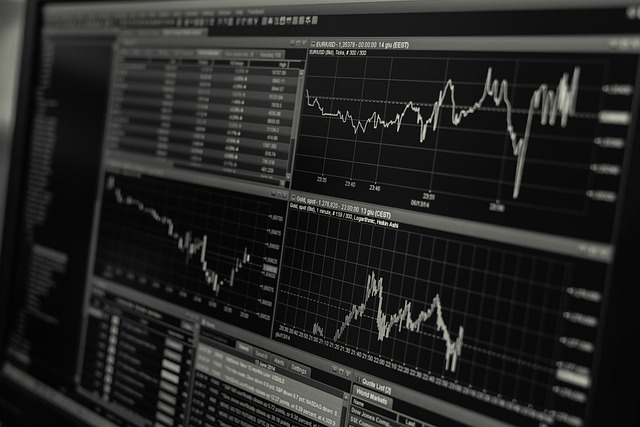The Rise of Trade Bots: Revolutionizing Financial Markets
In recent years, the advent of technology has brought monumental changes to financial trading, pushing aside traditional methods in favor of innovative solutions. One of the key players in this transformation is the "trade bot." These automated systems are designed to execute trades on behalf of traders, using algorithms to decide the best time to buy and sell assets. In this article, I will delve into the intricacies of trade bots, their advantages and disadvantages, and how they fit into the broader landscape of automated trading platforms.

What is a Trade Bot?
A trade bot is essentially a software program that interacts with financial exchanges and executes trades based on predetermined criteria. These bots can analyze market data, respond to changes in trends, and make trades much faster than a human could. In my opinion, these bots democratize trading by allowing individuals who may not have the experience or time to engage deeply with markets to still participate effectively.
How Do Trade Bots Work?
Trade bots operate using complex algorithms and strategies. Most require specific parameters to be set by the user, which can include:
- Indicators: Metrics that help determine the buy or sell signals, such as moving averages or RSI (Relative Strength Index).
- Risk Management: Settings that define how much capital to allocate for each trade and how much loss one is willing to tolerate.
- Trading Frequency: The speed at which the bot will execute trades—be it high-frequency trading or a more moderate approach.
These parameters are crucial because they dictate the bot's behavior in various market conditions. For those new to financial trading, I find the ability to automate thoughts and strategies particularly beneficial. It allows for a more disciplined approach compared to psychological trading often seen in human traders.
Types of Trade Bots
Trade bots come in various forms, each designed for specific trading needs. Here are a few examples:
- Market Making Bots: These bots aim to provide liquidity in the market by placing buy and sell orders simultaneously.
- Trend Following Bots: These bots analyze market trends to buy assets when they are on the rise and sell when they are falling.
- Arbitrage Bots: These bots take advantage of price discrepancies between different exchanges.
Each type serves its purpose, and I feel that understanding these differences can greatly enhance a trader's strategy. Selecting the right bot often requires a careful assessment of one’s trading style and goals.
Pros and Cons of Using Trade Bots
As any tool, trade bots have their advantages and downsides. Here's a closer look:
Advantages
- Speed: Trade bots can execute orders in milliseconds, something that is virtually impossible for a human.
- Emotionless Trading: Bots do not experience fear or greed, which often leads to irrational trading decisions by humans.
- 24/7 Operation: Unlike human traders, bots can trade round-the-clock, ensuring that opportunities are not missed due to time zone differences.
Disadvantages
- Technical Glitches: Relying solely on bots can be risky in case of software bugs or connection issues.
- Lack of Creativity: Bots can only execute predefined strategies and lack the ability to adapt to unforeseen market conditions.
- Over-Optimization: Bots may perform exceptionally well in testing environments but struggle in live markets.
I believe the key to successfully using trade bots lies in finding the right balance. They are not a complete replacement for a trader's instincts and should be seen as complementary tools that enhance decision-making.
The Future of Trade Bots and Automated Trading
As we look forward to the future, the role of trade bots is set to become even more pivotal. With advancements in artificial intelligence and machine learning, we can expect bots to become more sophisticated. They will be able to analyze vast amounts of data and adapt to changing market conditions almost in real-time.
For those fascinated with automated trading, I recommend checking out Exploring Automated Trading Platforms: The Future of Financial Trading. This article delves into how various automated trading platforms are reshaping financial markets for both retail and institutional traders.

Understanding Crypto Trading: The Role of Trade Bots
In the world of cryptocurrency, the volatility and rapid fluctuations in asset prices make trade bots particularly useful. They can help investors capitalize on short-term market movements. If you're interested in a deep dive into crypto trading, I highly recommend reading Understanding the World of Crypto Trading: A Comprehensive Guide. This resource offers insight into trading strategies, market analysis, and the various tools traders can utilize—including trade bots.
The Role of AI in Trade Bots
Artificial Intelligence is playing an increasingly significant role in automating trading processes. AI-powered trade bots can learn from past trades and market data to improve future performance. They can test countless scenarios much faster than any human could, making them invaluable for both beginner and experienced traders alike. For a more detailed understanding of the implications of AI in trading, I encourage you to explore The Impact of AI Trading on the Financial Market. This article discusses how AI is revolutionizing trading strategies and execution in the financial markets.
Conclusion
In closing, trade bots represent a significant leap forward in the way trading is approached in both traditional and digital frameworks. They offer advantages that can significantly enhance trading efficiency but come with their own set of challenges. As technology evolves, it will be fascinating to see how these tools develop and integrate further into our trading paradigms. For anyone serious about trading, I believe understanding the complexities of trade bots is crucial in a world where the markets are becoming more fast-paced and competitive. By leveraging the right tools—including trade bots—traders can improve their chances of success while managing risks more effectively.